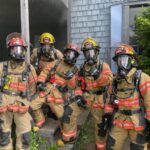Empowering Las Vegas Veterans: The Transformative Role of Trike Riding in Mental Health Recovery
How Trike Riding is Revolutionizing Veteran Mental Health Support in Las Vegas
In the vibrant city of Las Vegas, known for its dazzling nightlife and bustling energy, a subtle yet impactful movement is underway to enhance the mental health of veterans. Utilizing three-wheeled motorcycles, commonly called trikes, local initiatives are providing former military personnel with a unique avenue to improve their psychological well-being. These specially adapted vehicles offer more than just transportation—they deliver a profound sense of liberation, foster meaningful social connections, and serve as a therapeutic outlet, playing a vital role in addressing the mental health challenges faced by veterans.
Finding Healing and Community Through Trike Riding Programs
For many veterans in the Las Vegas area, trike riding has evolved beyond a pastime into a crucial support mechanism. These programs blend physical exercise with social interaction, which are essential components for those dealing with the often unseen scars of military service.Participants frequently describe the sensation of riding as a calming escape, where the steady engine hum and the open road help ease symptoms of post-traumatic stress disorder (PTSD), anxiety, and depression. The camaraderie built within these groups nurtures emotional resilience and fosters a sense of belonging.
Benefits veterans experience through trike riding include:
- Enhanced mental focus and decreased anxiety
- Strengthened social bonds and peer support
- Increased physical activity contributing to overall health
- Renewed confidence and a sense of purpose
| Program Element | Positive Outcomes for Veterans |
|---|---|
| Organized Group Rides | Encourages teamwork and mutual trust |
| Hands-On Mechanical Training | Builds practical skills and self-assurance |
| Peer Support Networks | Offers ongoing emotional encouragement |
| Community Engagement Events | Creates a welcoming environment and sense of inclusion |
Exploring the Therapeutic Impact of Trikes on PTSD and Mental Health
Adopting trike riding as a therapeutic approach has yielded encouraging outcomes for veterans managing PTSD and other mental health conditions. These three-wheeled motorcycles provide a rare opportunity to regain a feeling of autonomy and control often diminished by trauma. The repetitive motion combined with exposure to fresh air and natural surroundings stimulates sensory pathways, which can alleviate anxiety and depressive episodes. Veterans often report that the physical engagement required during riding enhances mindfulness,anchoring them in the present and helping to mitigate intrusive memories and flashbacks.
In addition to individual healing, trike programs cultivate a supportive community that promotes shared recovery experiences. Notable therapeutic advantages include:
- Social Engagement: Group rides break down isolation and foster camaraderie among veterans.
- Motor Coordination: Riding improves physical dexterity, boosting self-esteem and resilience.
- Stress Relief: Being outdoors and on the open road soothes the nervous system and reduces tension.
| Therapeutic Component | Effect on Mental Health | Veteran Testimonials |
|---|---|---|
| Sensory Engagement | Reduces hypervigilance and enhances awareness | “Riding helps me stay grounded when everything feels overwhelming.” |
| Physical Activity | Supports brain plasticity and overall wellness | “Being on my trike makes me feel alive and connected.” |
| Social Connection | Combats loneliness and builds trust | “I’ve found a brotherhood that understands me.” |
Community Involvement and Veteran Participation in Trike Programs
Grassroots organizations and dedicated volunteers have embraced the trike initiative, transforming it into a dynamic platform for veteran engagement and support. This collective effort has created an inclusive environment where veterans can forge friendships and discover new purpose beyond their military service. Regularly scheduled rides, maintenance workshops, and social gatherings not only improve riding proficiency but also strengthen the peer network essential for mental health recovery.
Core elements fueling the success of these programs include:
- Peer-led discussion groups encouraging open communication
- Technical training sessions focused on trike upkeep and safety
- Outreach campaigns to raise awareness and increase veteran involvement
| Activity | Frequency | Veteran Participation Rate |
|---|---|---|
| Monthly Group Rides | Once a month | 85% |
| Bi-Monthly Maintenance Workshops | Every two months | 65% |
| Weekly Mental Health Support Meetings | Weekly | 90% |
Expert Endorsements: Trike Therapy as a Complementary Mental Health Treatment
Mental health professionals are increasingly advocating for trike therapy as a valuable supplement to conventional treatments.The combination of rhythmic pedaling and outdoor exposure enhances mindfulness practices and helps reduce anxiety and depressive symptoms in veterans with PTSD. Beyond physical benefits, this therapy restores a sense of independence and control, which is frequently enough compromised in those facing psychological difficulties.
Experts emphasize several key benefits of trike therapy:
- Cardiovascular Improvement: Supports cognitive function through better heart health.
- Social Engagement: Group rides foster meaningful connections and community support.
- Inclusive Design: Trikes accommodate diverse physical abilities, ensuring accessibility for all veterans.
| Benefit | Veteran Feedback | Timeframe for Noticeable Effects |
|---|---|---|
| Reduction in Stress | “Riding clears my mind.” | 3-4 weeks |
| Elevated Mood | “It lifts my spirits every time.” | 2 weeks |
| Increased Stamina | “I feel physically stronger.” | 1 month |
Conclusion: Paving the Way for Veteran Mental Health Through Trike Programs
As dusk falls over the iconic Las Vegas skyline, the gentle roar of trikes cruising through desert landscapes symbolizes more than leisure—it represents a vital advancement in veteran mental health care. By merging physical activity with social engagement, these trike initiatives empower servicemen and women to reclaim their wellness journeys.With ongoing community support and increased visibility, such programs have the potential to inspire similar efforts nationwide, offering innovative solutions to the complex challenges of mental health recovery among veterans.








